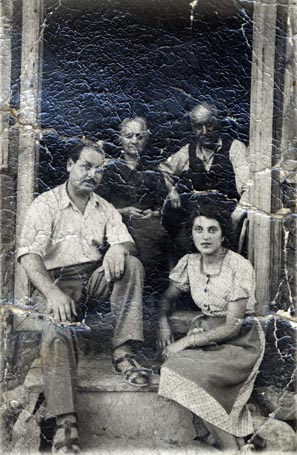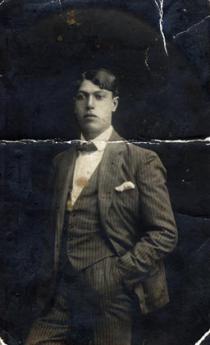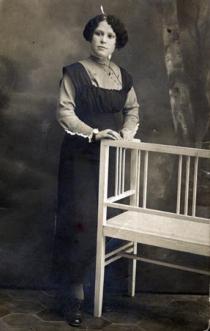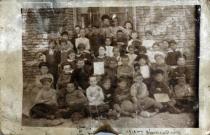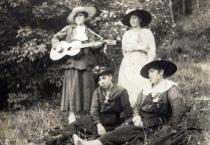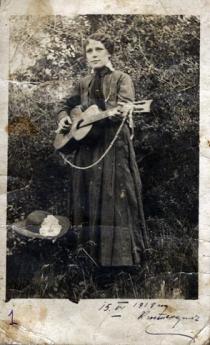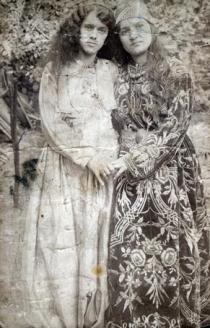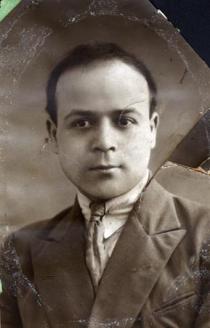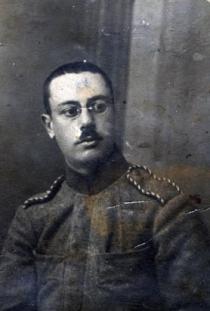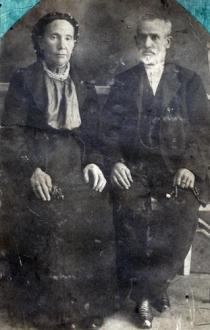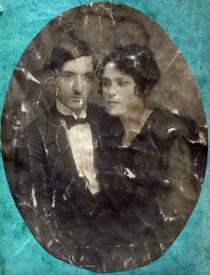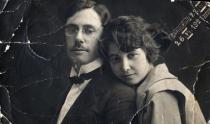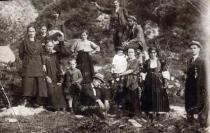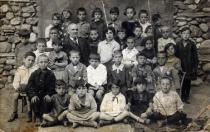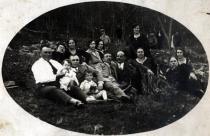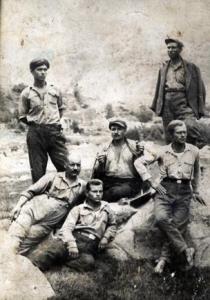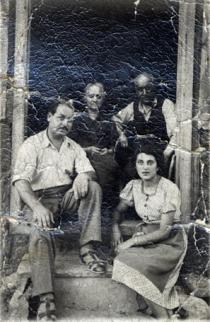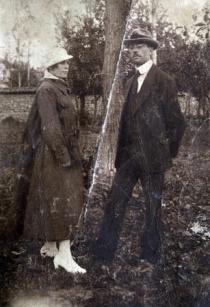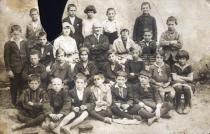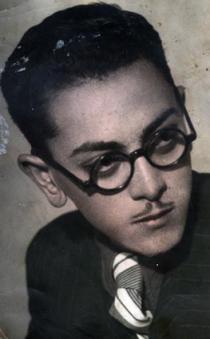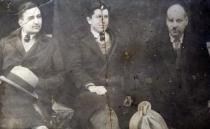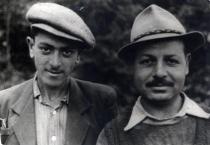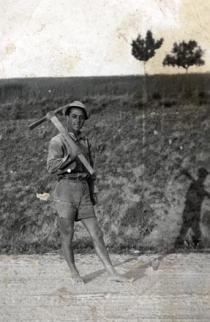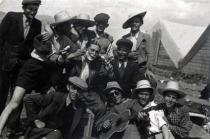This is a photo of my paternal grandparents - Rivka and Avram Alkalai and my uncle Azarya Alkalai with his wife Sara. My grandparents are behind them. The photo was taken in the village of Sapareva Banya [in the Rila Mountain] in the 1930s.
They were on holiday there. My uncle and his wife often went there. Uncle Azarya and his wife lived in Sofia and came to visit us in Dupnitsa. During the Holocaust they were interned to Dupnitsa. Uncle Azarya was a watchmaker. After the internment he went back to Sofia and after a couple of years he and his family went to Israel.
I know that my family name Alkalai is a geographical name. It comes from the Alkala Mountain in Spain. It seems my ancestors had that family name and it remained when they moved to the Balkans. The families of my parents are from Kyustendil. My paternal grandparents married in Kyustendil and all their children were born there. Then they moved to live in Dupnitsa [a town in Western Bulgaria]. I do not know when they decided to move. That happened before I was born. The reason to move was work, I suppose. Probably there were more opportunities for trade in Dupnitsa. I have heard that my paternal grandfather Avram Alkalai while living in Kyustendil came to Dupnitsa to sell whole carts full of sea-salt. He bought it from the wholesalers and resold it. He also sold other goods. At that time, merchants sold a lot of things - gas, oil, wool, cotton, paints. My paternal grandfather also had an oven, in which he used to bake prunes, which he sold. My father also did the same. My paternal grandmother Rivka Alkalai was a housewife. I know that she gave birth eleven times. Two of her children died and nine remained. My father was the oldest of them.
My paternal grandparents lived in a small house in the Jewish neighborhood. I visited them for the holidays. On Purim we went to their place with a purse so that they would give us some money. Also, in the evening, some of the children put on masks and we went to the houses reciting poems and the people gave us some small change. On Las Frutas [the popular name of Tu bi-Shevat among Bulgarian Jews] we roasted peanuts, almonds, walnuts and put them on the table. I do not remember if they prepared purses for us. On Chanukkah we did not light candles.
When we were in labor camps, we were close to one another and I often visited uncle Azarya. He had made an improvised underground stove in the ground to keep warm. We were in the camps during the winter. He was very inventive and so, he decided to make that stove. And it was working very well. He was also a very sociable man. He is still alive and is living in Israel. His son Avram is also a watchmaker and brings him some watches with bigger parts to repair because he has problems with eyesight. Uncle Azarya loved his profession and was addicted to it. He was a very kind man and always treated us very well. He lived on Pirotska Str. in Sofia.
I had friends in Sofia. Once my uncle Azarya went out so that we would all gather in his flat and have a party. My friends in Sofia were both Jews and Bulgarians. I met them when they visited the family of uncle Azarya.
